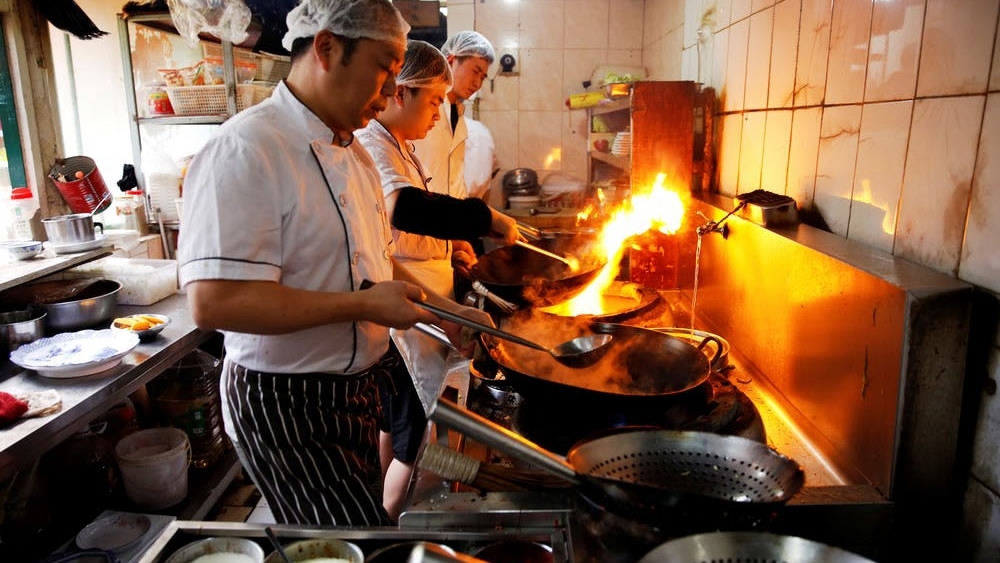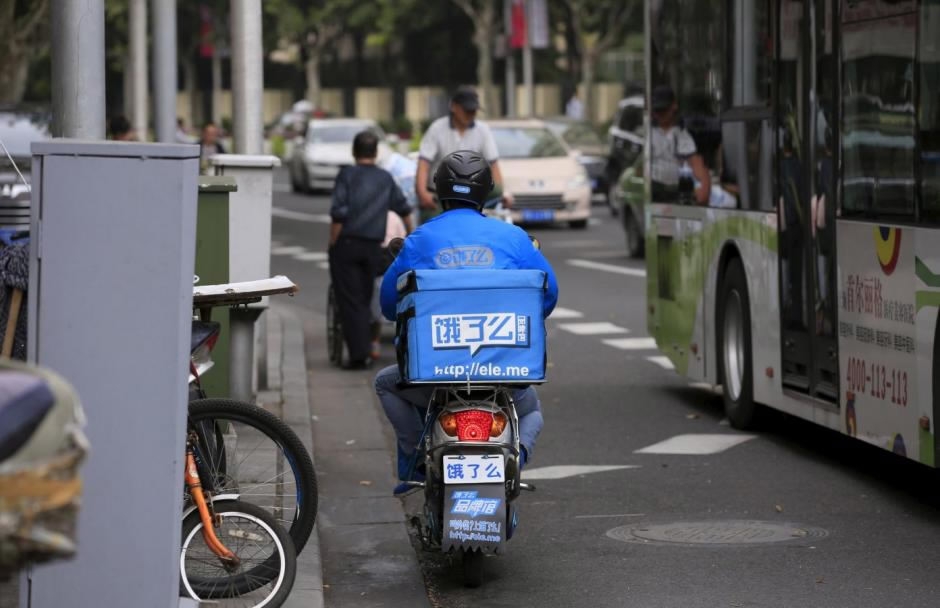
Business
14:48, 13-Nov-2017
No more mystery kitchens on takeout apps, says food authorites
CGTN's April Ma

Greasy kitchens without an actual storefront, solely catering to patrons ordering through take-out delivery apps, have less than two months to make sure they are fit for dining in, says the latest order by China’s food and drug regulator.
These "ghost restaurants", preparing meals in discreet locations, opening their doors only to welcome the food delivery man, have played a key role in driving China’s nascent food delivery boom, compensating for low costs with rudimentary cooking, minimal service and often hardly existent sanitary standards, unseen by the wary eye of the restaurant patron.
Squalid kitchens preparing deceptively clean and balanced meals such as curry rice or dumplings will no longer be able to run, according to regulations issued late last week by China’s Food and Drug Administration, which stipulated that starting 2018, all food vendors online must also operate as actual restaurants, in a move to better regulate a turbocharged sector that in 2016 was worth 166 billion yuan, or 25 billion US dollars.

A food delivery does his round in the streets of Shanghai./ Reuters Photo.
A food delivery does his round in the streets of Shanghai./ Reuters Photo.
Apart from hygiene, efficiency-driven joints have often come under fire poorly trained staff and slapdash procedures. Eleme, one of the nation’s largest take out platforms was heavily rapped by a national consumer’s watch report for hosting a slew of grimy "black kitchens", food suppliers that would fail to meet hygiene and health checks required of restaurants.
On top of the necessary restaurant qualifications, food delivery platforms such as Meituan and Eleme will also be required to form their own quality inspection squads and pay surprise visits to takeout restaurants. These takeout platforms, often flush with cash and valued at tens of billions US dollars, will be held accountable by local food and drug authorities, should consumer complaints arise.
The personal hygiene of delivery people should also be factored when assessing an eatery’s health standards, while air tight containers and packaging would also be considered, though details are vague.
Platforms have been known to turn a blind eye and even conspire with takeout restaurants and help less qualified joints get on the map, if it means a chance to outdo the competition by providing an even wider choice of meals, drinks, desserts - even groceries and fresh flowers.
The urgency to attract a wider array of suppliers and, ultimately. consumers serves as a disincentive to being selective among towards diners, lowering the bar to accommodate the popular snack stall around the corner, alongside the neighborhood McDonalds and well established dim sum franchise.

SITEMAP
Copyright © 2018 CGTN. Beijing ICP prepared NO.16065310-3
Copyright © 2018 CGTN. Beijing ICP prepared NO.16065310-3